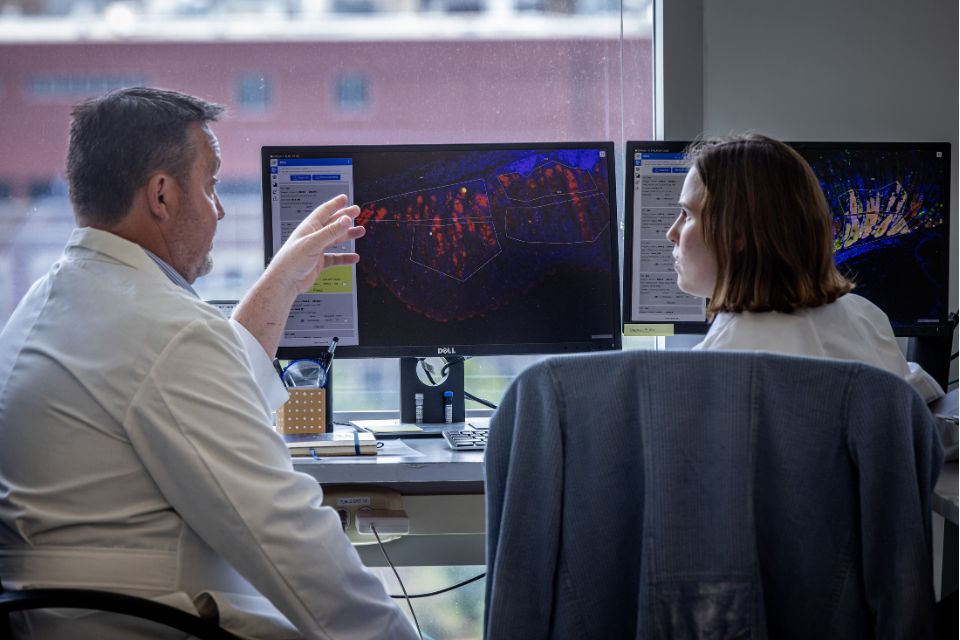Graduate Programs
Saint Louis University School of Medicine's graduate programs develop students into compassionate, forward-thinking leaders. Guided by Ignatian values, scholars learn to approach their discipline with a strong sense of purpose and a commitment to professional excellence that improves health outcomes in the community.
Research That Transforms
The School of Medicine's research and academic study are deeply intertwined. The University is part of an elite group with the prestigious "R1" designation — the highest possible classification for research activity, and a reflection of the School of Medicine's commitment to advancing medical knowledge and improving patient care. Distinctive research opportunities include:
- Infectious disease
- Liver disease
- Aging and brain disorders
- Immunology
- Neuroscience
Explore Research Opportunities
Mentorship That Empowers
Students thrive in the School of Medicine's close-knit learning environment. Smaller program sizes ensure focused guidance and support. Students are mentored by dedicated, accessible faculty who have open-door policies.
